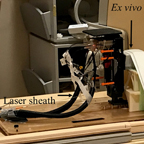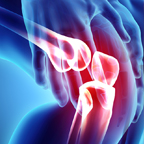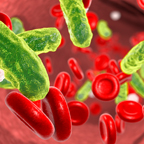Here is a sample of abstracts from the clinical research conducted at the NIH Clinical Center and published in a peer reviewed medical journal in 2018. Links to the full text and video formats are provided if available.

The National Institutes of Health Measure of Healing Experience of All Life Stressors (NIH-HEALS): Factor Analysis and Validation
Published in: PLOS ONE (December 2018)
The NIH-HEALS was developed and validated to better understand and measure psychosocial spiritual healing. Sometimes in the midst of significant life stressors including severe or life-threatening disease, psychosocial healing can be experienced.
Read the article.

MRI Robot for Prostate Focal Laser Ablation: An Ex Vito Study in Human Prostate
Published in: Journal of Imaging (November 2018)
Researchers have designed an integrated the hardware and software of a prototype robot that successfully demonstrated - in an ex vivo prostate tissue from a human cadaver - the potential to improve the clinical workflow, accuracy and effectiveness of MRI-guided focal laser ablation of prostate cancer.
Read the article.

Performance of RGM Medium for the Isolation of Nontuberous Mycobacteria from Respiratory Specimens from Non-Cystic Fibrosis
Published in: Journal of Clinical Microbiology (November 2018)
RGM medium - an agar-based culture medium - provided a simple and rapid method to identify fast growing nontuberculous mycobacteria in non-cystic fibrosis patients with chronic lung cancer.
Read the article.

On the Threshold of a New Analgesic: Shaping a Novel Treatment for Osteoarthritis Pain
Published in: ISAP Pain Research Forum (September 2018)
Alternatives to obtain a non-opioid analgesic for severe pain and chronic pain conditions are discussed. A promising development is resiniferatoxin, which can target peripheral nerve terminals through a local interventional approach versus systematic dosing to target the central nervous system.
Read the article.

Challenges in Pulmonary Hypertension: Controversies in Treating the Tip of the Iceberg. A Joint National Institutes of Health Clinical Center and Pulmonary Hypertension Association Symposium Report
Published in: American Journal of Respiratory and Critical Care Medicine (July 2018)
The unmet need for innovative therapeutic approaches to pulmonary hypertension is apparent across World Health Organization patient subtypes. Improvements in the clinical phenotyping of pulmonary hypertension is a necessary first step to better utilize existing therapies and develop new ones.
Read the article.

A Proposal for a Rational Transfusion Strategy in Patients of European and North African Descent with Weak D Type 4.0 and 4.1 Phenotype
Published in: Blood Transfusion (March 2018)
Patients with weak D blood types 4.0 and 4.1 are so rarely associated with alloanti-D production that treatment guidelines should be changed to recommend D positive blood transfusions and no anti-D immunoglobulin prophylaxis.
Read the article.

A Role for Hydrocortisone Therapy in Septic Shock?
Published in: The New England Journal of Medicine (March 2018)
Eagerly awaited to provide definitive guidelines for or against the use and effects of corticosteroids in treating septic shock were the results of two landmark studies the Adjunctive Cprticosteroid Treatment in Critical Ill Patients with Septic Shock trial and the Activated Protein C and Corticosteroid for Human Septic Shock trial.
Read the article.

Transcriptional Changes in Dorsal Spinal Cord Persist After Surgical Incision Despite Preemptive Analgesia with Peripheral Resiniferatoxin
Published in: Anesthesiology (March 2018)
A new approach is presented for post-operative pain control using a naturally occurring plant molecule called resiniferatoxin (RTX) to block post-operative incisional pain. RTX is not an opioid and does not act in the brain but rather on the nerve endings in the skin.
Read the article.

Ethics and Practice of Trials within Cohorts: An Emerging Pragmatic Trial Design
Published in: Clinical Trials (February 2018)
Trials within Cohorts is a promising new pragmatic randomized control trial design that is increasingly used in various countries. Although the asymmetric procedures for the experimental versus control arm subjects can initially raise ethical concerns, it is ethically superior to previous post-randomization consent designs.
Read the article.

Spironolactone-Induced Degradation of the TFIIH Core Complex XPB Subunit Suppresses NF-KB and AP-1 Signaling
Published in: Cardiovascular Research (January 2018)
Spironolactone-induced breakdown of the protein XPB reduces expression of pro-inflammatory genes. This previously unrecognized anti-inflammatory mechanism may be beneficial in diseases with vascular inflammation including pulmonary arterial hypertension, the focus of an ongoing clinical trial at the NIH Clinical Center.
Read the article
Read more articles about research in the NIH Clinical Center in 2018.

